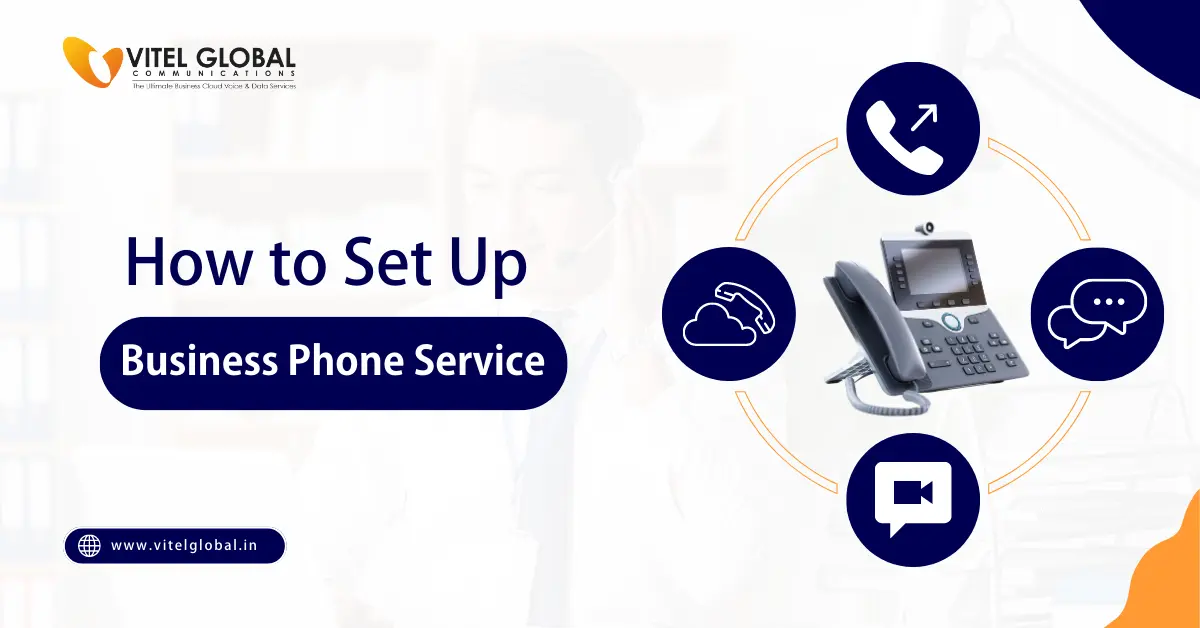Table of Contents
It can be challenging to decide when choosing a business phone service. The fear of making the wrong choice could lead to costly and unnecessary mistakes. This article will provide some information about important factors you should consider before investing in it for your company.
Choosing the right service will depend on your company’s needs and budget. For example, if you have few employees or limited space in your office, many reasonably priced Voice over Internet Protocol options may be suitable. Conversely, you need advanced features like custom hold music or conference call recording capabilities. In that case, there are more expensive enterprise-level services available that offer better value for money.
Before you choose a business phone system, you should understand what features and services are important to your company. It will help you to identify the right option for your needs and avoid making mistakes.
Checklist to Choose a Standard Business Phone Service
It is important to ensure that the service you choose offers all of the necessary features and functions you require.
Calling Features: Call waiting, conference calls, caller-ID, call forwarding, three-way calls, and conference calls.
Support: Help desk with L2/L3 support options like live chat, email, and phone support options. Additional premium features may include 24/7 support or a higher level of technical support with advanced features.
Network Quality: A quality network ensures uninterrupted service and quality call sound. It can be a deciding factor in choosing a provider. There are significant differences between providers in terms of network quality. Some have large coverage areas, while others may offer poorer services in rural areas.
Equipment: The quality, size, and style of business phone service that’s right for you can affect the needs of your network. For example, suppose you have multiple employees who must make conference calls and often call internationally. In that case, a multi-line phone system with more than two lines may be necessary additionally if you cannot access a high-speed Internet connection or already own the necessary devices to use the service. Choosing the best enterprise phone systems with desk phones could be the optimal decision for your company.
Cost: This will be the primary factor you should consider when selecting a provider. All the major providers offer various plans with different levels of quality services at different rates. Your budget act as the crucial factor to consider when selecting the equipment. So opt for the most affordable phone service that offers multiple benefits for your business.
Contract Length: Contract lengths differ from one provider to another. When considering a plan, you should ask for everything in detail to know your costs and limits. Ensuring that your chosen provider has signed an acceptable deal would be best.
Customer Service: Where do you go for assistance if your cloud phone does not work? A business phone service provider can be quite helpful regarding customer support. Consider the company’s policies towards billing and how we can resolve any problems swiftly.
Reliability: How likely will you have to deal with dropped calls or poor service from your chosen provider? Ensure that the company has a good reputation for providing reliable service.
Determining the Right Provider Is Crucial to Ensure Your Business Has a Dependable and Secure Phone Service.
Call quality: Call quality is crucial for businesses that rely on phone communication. VoIP cloud-based phone systems are known to have better call quality than traditional landlines, but the quality can vary depending on the internet connection.
Scalability: If you have a growing business, scalability is an essential factor to go through. Cloud-based phone systems are often the most scalable option, as they can easily accommodate additional users and features as your business grows.
VoIP may be a better option for businesses with fewer employees but high usage of phone calls. It can also be more cost effective than traditional phone services if your usage is low.
Business Phone App: It is a versatile solution that can be used on desktop and mobile devices. A business phone app can help you stay connected with your clients and colleagues no matter where you are. The latest business phone app offers features like call recording, video conferencing, and real-time messaging to make communication more efficient and productive.
Optimum Utilization of Business Phone Solution
Options Button: An options button is found on some handsets. It allows you to access a menu or dial numbers automatically while waiting for someone to answer or play certain recorded messages such as “The person you called has not answered” or “I’m unavailable right now.”
Volume Control: Most phones have this option to adjust the ring volume by pressing it when it starts ringing.
Line Indicator: An illuminated light that flashes when there is an incoming call and if your line is in use.
Long-distance and International Calling: Long-distance and international calling are important features for businesses that must communicate with clients and employees worldwide. With the right business phone system, making these calls can be affordable and convenient.
When choosing business phone services for long-distance and international calling, some consideration factors include pricing and planning, connection quality, and customer support.
Messages: If you have a phone with this feature (which is on most landlines), it will display voicemails or messages for incoming calls. The provider may charge extra if your phone does not have this feature.
Intrusive Answer/Hold (IVR): If a caller/caller ID cannot be answered by simply pressing the phone, it may connect them directly to your voicemail.
Caller ID: A feature that displays the name of any incoming callers and the number they are calling from so you can avoid or answer them at will.
Selecting the Business Phone Equipment
 Choosing the right phone equipment for your business can be massive.
Choosing the right phone equipment for your business can be massive.
The types of phone equipment you choose should meet your business needs. A cloud-based phone system is the best option if you are looking for advanced features such as call recording or IVR.
Cloud-Based Phone Systems
Cloud-based business phone systems are Voice over internet protocol systems hosted in the cloud. They offer advanced features such as IVR and a virtual phone system and can be accessed from anywhere with an internet connection. They are also scalable, making them a great choice for growing businesses.
PBX
A PBX phone system is a business phone solution to manage an organization’s incoming and outgoing calls. A PBX is a private telephone network within a company or organization.
A cloud-based PBX phone system allows for several useful business features, such as call routing, forwarding, voicemail, and conference calling. You can also integrate with other communication systems like email, instant messaging, and cloud video conferencing.
Overall, a PBX system can help improve communications and productivity within a business by streamlining the process of managing phone calls and providing a range of useful features for employees to use.
Virtual Phone System
A virtual phone system can be great for businesses seeking a cloud phone solution. Unlike traditional phone systems that require expensive hardware and installation, virtual phone systems operate entirely in the cloud, meaning they can be set up quickly and easily.
It offers many features, including auto-attendants, call routing, voicemail, and call recording. They also often include mobile apps, allowing employees to use their devices as business phones.
Additionally, virtual phone systems are often more affordable than traditional phone systems.
A virtual phone system can be an excellent choice for businesses seeking a flexible, feature-rich, cost-effective phone equipment solution.
Maintaining the Business Phone System
Upgrading Your System: The more advanced your business is, the more obsolescence you will experience with your phone system. Consider doing upgrades to stay ahead of the curve. Upgrades can include IP Phone service, VoIP internet lines, and conference systems.
Regular Maintenance: You’ll probably miss giving your phone system a once-over every day, but you should make sure it’s up to date on maintenance just the same. When you take care of your phone systems, you keep them ready when needed.
Troubleshooting: If you are experiencing issues with your business phone, it is important to address them promptly to ensure that your communications with customers and clients are not interrupted. Choosing a provider who can offer better customer support will reduce the impact of troubleshooting. It helps in quickly resolving the issue and provides a hurdle-free journey.
Conclusion
If you feel like you have found the perfect website to visit and purchase from, the phone service that not only fits your needs but also meets those of your employees but can’t seem to get a hold of anyone at the company, it’s time to Book a Free Live Demo with the Cloud phone service provider. It will eliminate all of your frustration and ensure your purchase goes smoothly.
Moreover, doing this when a representative is available rather than waiting for them to reach out will generally lead to a better experience.
This guide is just a small list to get you started setting up a business phone service, but I hope it helps! The most important thing is to remember that different providers cater to different needs.







